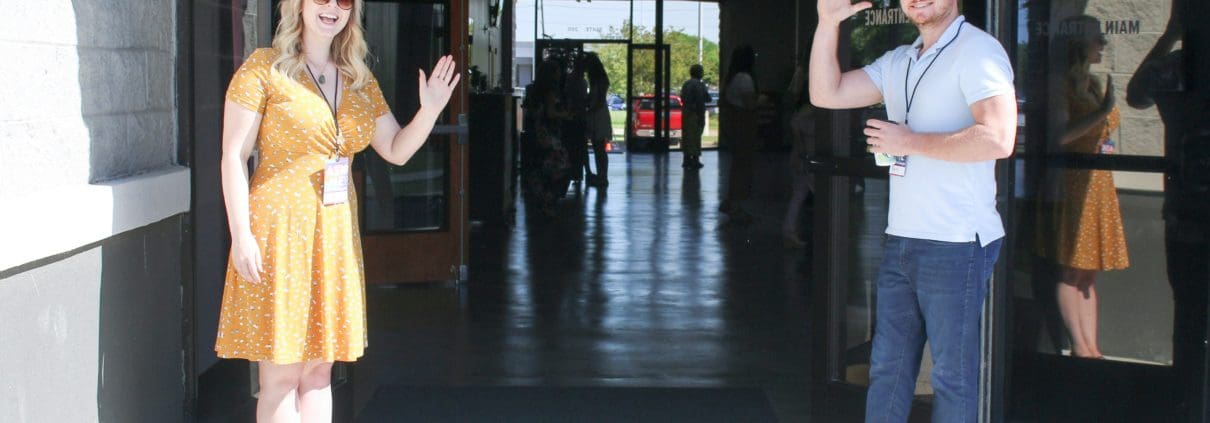Social Events Can Be More Satisfying When You Have a Job to Do
Social events are often hard when you don’t know many—or any—other people in attendance. But if you have a job or role at the gathering, people will approach you!
When I moved to Minneapolis from Madison, Wisconsin in 1999, I wanted to find a job in the field I was pursuing at the time: career counseling—specifically, working as a counselor in a college or university career center.
In graduate school, I had learned the importance of joining, and participating in, professional associations in one’s field, particularly when you’re looking for a job in that field.
So I dutifully tracked down information about the Minnesota Career Development Association (MCDA) and attended its spring statewide conference in St. Paul.
I say that like it was simple.
It was not.
Social Events Can Be Hard
While it’s probably too strong to say that I forced myself to go the conference, I didn’t exactly revel in the idea either.
I really didn’t know anyone in the group, and those few people I did vaguely know were nothing more than passing acquaintances.
So let’s just say I had to talk myself into going to the event.
And then I had to talk myself into talking to other people once I was there.
And then I had to talk myself into the hardest task of all: asking to join an already-established table group during the chicken alfredo lunch.
I managed—you do what you have to do when it comes to social events, right?
In fact, as often happens, I ended up enjoying myself at the conference, despite my initial reservations.
So when the organization was seeking volunteers a few months later to help organize the next spring’s statewide conference, I signed up.
That’s when—and how—I stumbled upon a key introvert trick I use to this day in pretty much any type of social event where I might initially feel uncomfortable.
I get—or find … or create—a job.
No, not that kind of job (i.e., a paid job, like the one I was looking for in 1999).
I mean a job in terms of a task you’re given, or a role you take on, at any type of group social function you’re a part of.
The Beauty of People Coming to You
When I attended that next MCDA conference, my nametag—like those of everyone else on the conference planning committee—had a colorful little sticker on it indicating that I was a member of the committee.
So what, you might ask?
The sticker signified that I had a “job” with the conference.
And that clear Bat Signal in turn made people come up to me—to say thanks, to ask where the restrooms were, to figure out where the room was for a session they wanted to attend, and on and on.
Just like that, then, people were approaching me to say hello—giving me and them a chance to introduce ourselves to each other organically instead of artificially.
And opening the door to more-extensive and more-fruitful discussions later.
All because I had a job—a role that others in attendance could easily identify and then cite as a simple reason to approach me.
It worked.
And it still works, like the proverbial charm.
And you, too, can employ the strategy, in all kinds of everyday social circumstances.
For Social Events of All Kinds
Sometimes, the people hosting social events will simply offer you one of these jobs. If so, take it!
It’s more likely, though, that you’ll have to offer yourself up for such a job—or simply take it on voluntarily if and when the opportunity presents itself.
A few examples:
Your parents’ 50th anniversary party. Offer to be the person who buys and then gets attendees to sign a guestbook commemorating the occasion. Suddenly you have a reason to approach people and talk to them, and they you.
The book fair at your kid’s school. Volunteer to help oversee sales transactions at the cash register, or join the small group of parents who set the whole thing up and take it down.
Services at your religious institution. Be a greeter—one of the people who makes others feel welcome at worship gatherings and helps them get settled into their seats.
The “command performance” holiday party for work. If/when one of your colleagues asks you to help plan the thing, say yes—but with a semi-behind-the-scenes role in mind. For instance: You could conduct an informal survey (via email or simply by talking to people in person) to get a sense of what food and drink offerings attendees would like to see.
Less Work, More Savoring
The “job” you get—or find … or create—at a social gathering doesn’t have to be a big one.
It just needs to be viewed by others as the job/role that it is, so that it naturally compels people to seek you out.
Because then they will!
And you can then use your energy to savor deeper interactions with people—instead of trying to awkwardly contrive them.





We have a church Halloween party every year and I love being in charge of the popcorn machine for this very reason!
Brilliant, Carolyn! Thanks for reading!